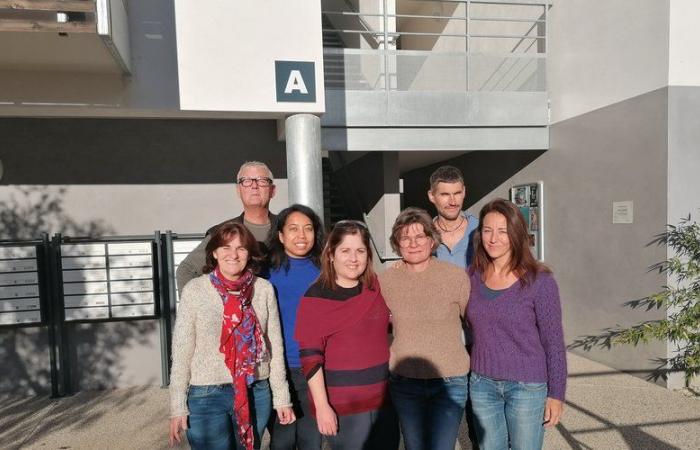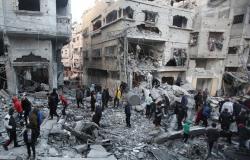
Doctors and nurses were at the bedsides of people outside the care pathways this Wednesday, November 27. A public health action for the benefit of users but also of the population.
“Hello, I am calling to have an interpreter for an Albanian patient, to explain to her the procedure of the examination she will undergo…” Like Adeline Sagnat, nurse coordinator of Clat 34 (Departmental anti-tuberculosis center), several health professionals, committed and welcoming, were gathered this Wednesday, November 27, at the Résidence Habitat Jeunes Émile-Claparède, in order to offer anonymous and free prevention and screening action for tuberculosis, HIV, sexually transmitted infections and hepatitis.
“The objective is to allow so-called precarious or at-risk populations, sometimes of foreign origin, to access a healthcare networkindicates Dr France Brel, from CeGIDD (Free Center for Information, Screening and Diagnosis of Human Immunodeficiency Virus Infections, Viral Hepatitis and Sexually Transmitted Infections).
Access to care is not always easy
“We have consultations at the Béziers hospital, in Perréal, but we also travel to meet people who are in precarious circumstances or without reference, who have a lack of knowledge of the risks but also of the structures to which they must contact. Who have fears or fears of being stigmatized”, continues the practitioner. This may concern asylum seekers, students, homeless people or people without social security coverage.
An important initiative as access to care can be complex when one is not familiar with its practical or administrative workings. “The distance from care is not only financial. From the moment you do not have a general practitioner, it is already precarious”further testifies France Brel. Gold, “Health is not necessarily a priority for some people. Their priority is to know if they will have a roof to sleep in, if they will be able to eat or give food to their children”, supports Adeline Sagnat.
A whole committed network
The “patients” of the day were able to benefit from a lung x-ray, STI screening, HIV (AIDS) and hepatitis B and C screening and, above all, benefited from information and advice. . “The liver is a painless organunderlines Corinne Rotrou, nurse coordinator of the hepatitis control service at the Saint-Éloi hospital in Montpellier, hence the importance of screening and the importance of mobilizing an entire network behind it as well, if we discover something so as not to leave the person alone facing the result”.
“It is a public health action, so it is both for users but also for the protection of the general population, in order to detect contagious diseases, particularly at an early stage”concludes Adeline Sagnat.
A united campus
The Résidence Habitat Jeune Émile-Claparède, supported by the eponymous association, is a campus which houses a residence with 174 accommodations for 16-30 year olds (young workers or job seekers, students). It houses a unit for unaccompanied minors, in agreement with the Department and a restaurant, a social residence… The Cada (reception center for asylum seekers) also depends on the association, even if its buildings are located further away . Finally, the RHJ offers the services of Accueil santé Béziers, which supports people without or insufficient social security coverage.





